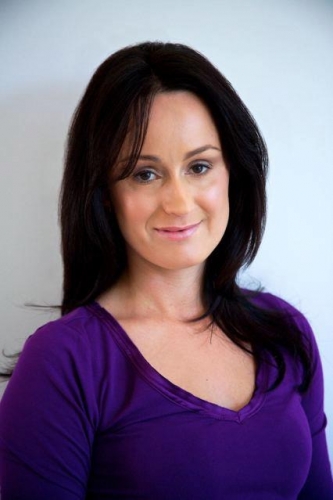Vision loss is a growing problem in rural and remote Australian communities, and blindness among Indigenous Australians is three times the rate of non-Indigenous Australians, said Dr Angus Turner, Director of
Lions Outback Vision.
The need for high quality and professional outreach health services in these communities is critical, said Dr Turner, who has been providing retinal screening and diabetic retinopathy management, telehealth support, optometry and ophthalmology services in Western Australia for the past eight years.
Subscribe for FREE to the HealthTimes magazine
In 2015, the Vision Van, a custom-built mobile eye health clinic, was mobilised to take specialists and specialist equipment to regions without access to eye health care services that are essential for quality of life, explained Dr Turner.
“The Vision Van has covered hundreds of thousands of kilometres throughout Western Australia, and each week we treat hundreds of people and identify patients who require surgery for cataracts, trachoma, glaucoma and diabetic retinopathy.
“As well as having on board doctors and nurses, the Vision Van is supported by visiting optometrists, who provide screening and treatment for refractive error, including the provision of low-cost spectacles.
FEATURED JOBS
St Vincent's Private Hospital
“We see patients in regional centres as well as tiny towns and communities. In many cases, we can see Indigenous patients in their familiar environment, rather than asking them to travel great distances from home.
Another important component of the work of Lions Outback Vision is the LOV food program, launched in 2017. This education program offers a fun and interactive way for children in rural and regional Western Australia to learn about the relationship between eye health, diabetes and food.
“The program provides practical cooking lessons and tips and builds the capacity of local health staff to deliver health outcomes to the community. This type of local capacity-building is a core principle of LOV.”
Dr Turner said being able to deliver the highest quality eye health care to people who generally can’t access it, or who might have to travel hundreds of kilometres from home to receive appropriate care and treatment, is the most rewarding part of his work with Lions Outback Vision.
“Last year we undertook more than 7000 ophthalmology patient consultations, and the Vision Van travelled almost 24,000 kilometres. It is so satisfying to be able to make a tangible difference to the quality of life of all of these Australians.
“The transformational work we do gives us immense satisfaction. When you perform cataract surgery on an Indigenous patient, and she is able to see her grandchildren for the first time in her life, it brings tears to your eyes.
“When you treat a patient for his rapidly deteriorating sight that inhibits his ability to carry out valuable work teaching Aboriginal rangers, it is both humbling and rewarding.
“We are treating individuals, but there are ripple effects right throughout the community and economy.
“We also derive great satisfaction from working with local nurses, Aboriginal health workers, Aboriginal liaison officers, GPs and optometrists, to share our knowledge and help to enhance their skills,” said Dr Turner.
The Vision Van and LOV program will continue to expand their geographic reach and services as there is an ongoing need in rural and remote Western Australia.
“One of our dreams is to establish a North West Hub, to better service the vast Pilbara and Kimberley regions. More than 100,000 people live in these regions, yet there are currently no ophthalmic specialists located there.
“We believe that closing the vision gap in Australia’s North West will come from a model that has a hub in a town such as Broome, and then weekly optometry and ophthalmology services delivered throughout the regions to places such as Karratha, Port Hedland, Fitzroy Crossing and Halls Creek.
“Through this model, we would develop a stronger connection to the community and gain a better understanding of regional eye health issues.”
One of the biggest challenges of the Vision Van and LOV program is bringing others along on the journey to support these vital services, explained Dr Turner.
“Stakeholders such as governments, public health sector leaders and funders such as philanthropists and companies are important to LOV's sustainability, so we need to ensure they support us in our critical agenda to close the gap in vision problems.”
Dr Turner said he encourages any health professional to grab the opportunity to work in regional and remote healthcare with both hands.
“I would love to see more young ophthalmologists gain the experience of working in regional Australia, helping to address the inequality of eye health care for those living outside of the metropolitan area.
“It is such a privilege to be able to work in areas of great need, and there is enormous value to be derived from caring for disadvantaged or marginalised people and communities.
“Working regionally or remotely often enables health professionals to experience a full range of conditions and circumstances, as well as the diversity of patients that they might not be exposed to in a metropolitan environment.
“It gives people the opportunity to truly make a difference, in a tangible way.
"There is a special collegiality and spirit of collaboration among people working in the bush that is unique and adds a lot of depth to the work that we do,” said Dr Turner.













